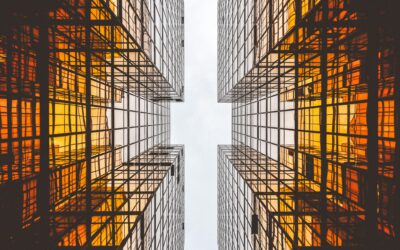A DevOps Approach to Test Data Management
MAR, 2023
by Andrew Walker.
Author Andrew Walker
Andrew Walker is a software architect with 10+ years of experience. Andrew is passionate about his craft, and he loves using his skills to design enterprise solutions for Enov8, in the areas of IT Environments, Release & Data Management.
DevOps has become a popular approach to software development and delivery, aiming to bring together development and operations teams to build and release software more quickly, reliably, and efficiently. The DevOps approach emphasizes collaboration, automation, and continuous delivery, which has revolutionized the way organizations build and deliver software products. However, one critical aspect of DevOps that is often overlooked is test data management.
”Enov8
*aka ‘Data Compliance Suite’
The Data Securitization and Test Data Management platform. DevSecOps your Test Data & Privacy Risks.
Test data is the foundation of software testing, and it is crucial to ensure that it is accurate, diverse, and representative of the production environment. Poor test data management can lead to failed releases, production issues, and delayed time-to-market.
In this blog post, we will explore the importance of effective test data management in the DevOps approach and discuss techniques for achieving it. We will also highlight the benefits of using automation and collaboration in test data management and provide some tips for getting started. Ultimately, this post aims to show how adopting a DevOps approach to test data management can help organizations improve the quality, speed, and cost-effectiveness of software development.
The Importance of Test Data Management in DevOps
Test data management plays a crucial role in the success of DevOps implementation. Test data provides the foundation for software testing and quality assurance, enabling developers and testers to ensure that software products function correctly and meet customer requirements. Effective test data management ensures that test data is accurate, diverse, and representative of the production environment, enabling developers to identify and fix defects early in the development cycle.
Poor test data management can lead to a wide range of issues, such as failed releases, production defects, and delayed time-to-market. For example, if test data is not representative of the production environment, it may not identify defects that may occur in the actual production environment, leading to production issues. If test data is not diverse, it may not test all possible scenarios, leading to software products that do not meet customer requirements. If test data is not accurate, it may lead to false positives or false negatives, resulting in wasted time and resources.
Therefore, it is crucial for organizations to invest in effective test data management to ensure that they can deliver high-quality software products quickly, reliably, and efficiently. Effective test data management helps organizations reduce costs, improve software quality, and increase customer satisfaction by identifying defects early in the development cycle and ensuring that software products meet customer requirements. In the next section, we will discuss different techniques that organizations can use to achieve effective test data management in the DevOps approach.
Enov8 TDM, DevOps that Data: Screenshot
Techniques for Effective Test Data Management
There are several techniques that organizations can use to achieve effective test data management in the DevOps approach. These techniques aim to ensure that test data is accurate, diverse, and representative of the production environment, enabling developers and testers to identify and fix defects early in the development cycle.
- Data Virtualization – Data virtualization, also called Data Cloning, is a technique that allows developers and testers to access and manipulate test data without the need for physical copies. This technique enables organizations to create virtual copies of data that can be accessed and manipulated by multiple teams simultaneously, reducing the need for multiple physical copies of data. Data virtualization also allows organizations to create test environments that are identical to the production environment, reducing the risk of production issues.
- Data Masking – Data masking is a technique that involves replacing sensitive data with non-sensitive data during the testing process. This technique ensures that sensitive data is not exposed during the testing process, reducing the risk of data breaches. Data masking can also help organizations comply with data privacy regulations such as GDPR and CCPA.
- Data Subsetting – Data subsetting is a technique that involves creating a subset of test data that is representative of the production environment. This technique enables organizations to reduce the amount of test data needed for testing while ensuring that the test data is diverse and representative of the production environment. Data subsetting also helps reduce the storage requirements for test data.
- Data Fabrication – Data Fabrication, also known as data synthetics, is a technique that involves creating fake data that mimics the characteristics of real data. This technique enables organizations to create test data that is not available in the production environment, such as extreme or rare scenarios, and to test the system’s response to those scenarios. Data fabrication can also be used to create test data when real data is not available or too expensive to acquire.
These techniques can be used individually or in combination to achieve effective test data management in the DevOps approach. The choice of technique(s) will depend on the organization’s specific needs and requirements. In the next section, we will discuss how automation and collaboration can help organizations achieve effective test data management in the DevOps approach.
Automation and Collaboration in Test Data Management
Automation and collaboration are critical elements in achieving effective test data management in the DevOps approach. With the rapid pace of development in a DevOps environment, manual processes are no longer sufficient for managing test data. Automated processes can help organizations create, manage, and refresh test data quickly and efficiently, reducing the time and effort required for testing.
- Test Data Automation Test data automation involves automating the processes of creating, managing, and refreshing test data. This technique enables organizations to create and manage test data quickly and efficiently, reducing the risk of human error and ensuring the accuracy of the test data. Test data automation can also be used to automatically mask or subset test data as required, ensuring the security and compliance of the test data.
- Collaboration Collaboration between different teams involved in the DevOps process, such as developers, testers, and operations, is critical for effective test data management. Collaboration enables teams to share knowledge and expertise, ensuring that the test data is representative of the production environment and that defects are identified and fixed early in the development cycle. Collaboration can also help teams identify opportunities for improving test data management processes and techniques.
- Continuous Integration and Continuous Delivery (CI/CD) Continuous integration and continuous delivery (CI/CD) practices enable organizations to automate the entire software development and deployment process, including test data management. With CI/CD, developers can continuously integrate and test code changes, ensuring that defects are identified and fixed early in the development cycle. Test data can be automatically refreshed and managed as part of the CI/CD process, ensuring that test data is always up-to-date and representative of the production environment.
Effective test data management requires a combination of automation and collaboration. Automation enables organizations to create and manage test data quickly and efficiently, while collaboration ensures that the test data is representative of the production environment and that defects are identified and fixed early in the development cycle. (http://rxreviewz.com/) In the next section, we will discuss the benefits of effective test data management in the DevOps approach.
Conclusion
Effective test data management is essential for the success of software development in the DevOps approach. Accurate, diverse, and representative test data enables developers and testers to identify and fix defects early in the development cycle, reducing the risk of production issues and improving software quality.
Organizations can use a range of techniques for effective test data management, including data virtualization, data masking, data subsetting, and data fabrication. Automation and collaboration are also critical elements in achieving effective test data management in the DevOps approach. Test data automation enables organizations to create and manage test data quickly and efficiently, while collaboration enables teams to share knowledge and expertise, ensuring that test data is representative of the production environment.
To achieve effective test data management, and DataOps in general, organizations can consider using Enov8 Test Data Manager, a comprehensive solution designed to help teams manage, automate and govern their test data operations. Enov8 Test Data Manager allows teams to quickly create and manage test data, ensuring that it is diverse, representative, and compliant with data privacy regulations.
Effective test data management can provide several benefits to organizations, including reduced time-to-market, improved software quality, and reduced costs associated with testing. By adopting a DevOps approach to test data management and leveraging tools like Enov8 Test Data Manager, organizations can achieve these benefits and stay ahead in today’s competitive business landscape.
Other TDM Reading
Explore Test Data Management further:
Enov8 Blog: What makes a good Test Data Manager?
Enov8 Blog: TDM Strategy Design Guide Best Practices
Enov8 Blog: Why TDM is so Important!
Relevant Articles
Data Mesh vs Data Lake: Choosing an Architecture
As organizations scale and mature their digital ecosystems, data becomes both a key asset and a major architectural challenge. Live by the data, die by the data. With vast quantities of structured and unstructured data pouring in from dozens (or hundreds) of...
RAG Status: What It Is and Using It for Project Management
Effective Leadership requires effective tooling to drive successful outcomes. One tool they can use to monitor and measure progress is RAG status. RAG stands for Red, Amber, Green, and is a simple traffic light system used to communicate the current status of a...
Enterprise Architecture Tools: 11 to Be Aware Of in 2025
Enterprise architecture (EA) is an essential discipline for organizations aiming to align their IT strategy with business goals. As companies become more complex and technology-driven, having the right set of EA tools is crucial to streamline operations, improve...
What is a Staging Server? An Essential Guide
Release issues happen. Maybe it’s a new regression you didn’t catch in QA. Sometimes it’s a failed deploy. Or, it might even be an unexpected hardware conflict. How do you catch them in advance? One popular strategy is a staging server....
What is Deployment Planning? A Detailed Guide
Deployment planning, sometimes referred to as "implementation planning," is the process of creating a plan for the successful deployment of a new software or system. It involves identifying the resources, tasks, and timeline needed to ensure that the deployment is...
Bloor Research Reviews Enov8 Test Data Manager for Advanced Test Data Management
Sydney, Australia – March 2025 – Enov8, a leader in IT & Test Environment Management solutions, is pleased to announce that Bloor Research has published an independent InBrief on the Enov8 Test Data Manager (TDM), recognizing its innovation and impact on secure,...
The Definitive Guide to Test Data Generation
Test data generation is a critical part of the software testing lifecycle, ensuring that applications are tested against realistic scenarios before going live. If you’re not testing against production-like data, you’re arguably not truly testing your application. In...
What is a Test Data Manager? A Detailed Introduction
Testing is a critical aspect of software development, and it requires the use of appropriate test data to ensure that the software performs optimally. Test data management (TDM) is the process of creating, storing, and managing test data to ensure its...
How to Manage Test Data in Software Testing
To compete in today's market, software companies need to create programs that are free of bugs and vulnerabilities. In order to accomplish this, they first need to create test data models specifically for staging environments. Test data sets must be compact,...
Agile Release Train Explained: Everything to Know
If your organization is starting an agile transformation, you might be looking at it as an opportunity. Or perhaps you’re looking at it with some healthy skepticism. Either is understandable—or even both at the same time. The opportunity arises from the fact that...
Break New Ground In Your Test Environments
Receive the latest news and updates in the test environment space to help you develop a more holistic and effective environment management strategy.
Enov8 is committed to user privacy and will never share your email address.
Whitepapers
Keep up to date with the latest resources, including whitepapers to improve your understanding and knowledge of tools to accelerate digital transformation.
Blogs & Updates
Stay in touch with Enov8 and our wide network. Receive regular updates and insights from the industry, and find out what we're working on!









